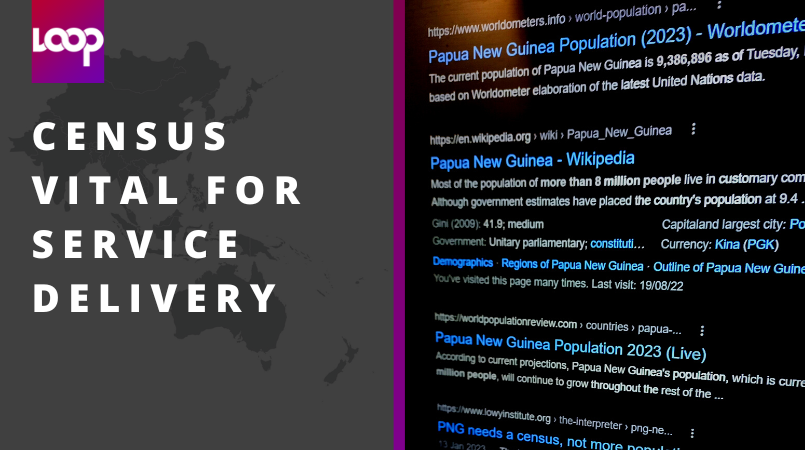
Every 10 years, Papua New Guinea (PNG) conducts a “Decennial Census” with the goal of determining the distribution of resources and political representation by counting every person in the areas where they live in the country.
The National Research Institute (NRI) Spotlight Volume 16, Issue 3 titled: “Census Data is needed for fair political representation and distribution of resources” by Peter Michael Magury, Research Fellow at PNG NRI, provides insights on the importance of census data in political representation and in providing services in PNG.
Magury says, “An accurate, reliable, robust, and complete population census is important in ensuring that funds provided by the government for providing infrastructure and services are fairly distributed in the provinces and districts in PNG.”
The last population census in PNG was conducted in 2011, which is more than ten years ago. This means that the country is currently using more or less an outdated data for planning, budgeting and allocation of resources among competing needs. Reliance on outdated census data has the potential to contribute to poor implementation of various government programs, strategies and interventions.
The delay in conducting National Census will have a negative impact on proper national budgeting, providing services and the implementation of different development initiatives that depend on census data to work.
The publication emphasizes that the Government of PNG should ensure that population census is conducted as authorized by the PNG’s Constitution.
That is, to collect accurate, reliable and complete population data every ten years to ensure fair political representation and equal distribution of government funds for providing infrastructure and services in different segments of the country.
The Publication can be accessed on the PNG NRI website https://www.pngnri.org.
